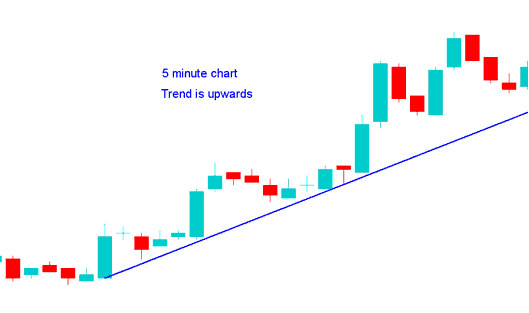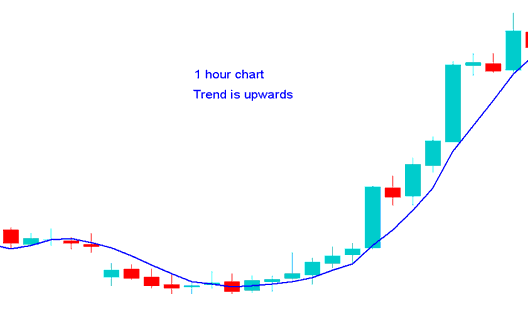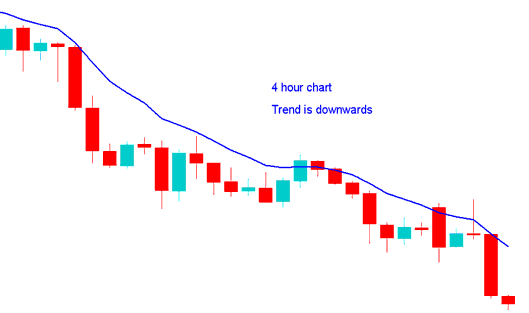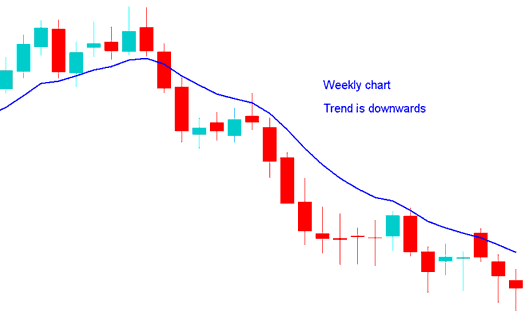Multiple Time Frame Analysis
Multiple timeframes analysis equals using 2 chart time-frames to trade stock indices - a shorter one used for trading and a longer one to check the trend.
Since it is always good to follow the market trend, in Multiple Timeframe Analysis, the longer time frame gives us the direction of the long-term trend.
If the long-term market direction supports the direction of the smaller chart time frame then the probability of being profitable is greatly increased. This is because even if you make a mistake the long-term stock trend will eventually save you. Also if you trade with direction of the market, then mostly you will be on the winning side, this is what this analysis is all about.
Remember there's a popular saying by many Stock Indices Trading and stock market investors that says: 'The trend is your friend' - never go against the stock index trading market.
There are four different types of Stock traders - all these use different charts to trade as explained below.
Examples of how each type of trader uses multiple Stock Indices Trading timeframes analysis strategy:
Scalpers
This group holds on to their trades for only a few minutes. The scalper never holds on to a trade for more than ten minutes. With the objective of making small amounts of pips as profit, 5 - 20 pips.
A Scalper using 1 minute chart wants to go long, checks 5 minute chart, which looks like the one below, since 5 minute show trend is moving up, then decides from this analysis it is okay to buy.

Day Traders
This group holds on to their trades for a few hours but not more than a day. With the aim to make quite a number of pips, 30 - 100 pips.
Day trader trading 15 min chart wants to go long, checks 1 H chart, which looks like the one below, since 1 hour highlights market trend is moving up, then decides from this analysis it is okay to buy

Swing Traders
This group holds on to their trades for a few days to a week. With the aim to make a large number of pips, 100 - 400 pips.
Swing trader using 1 H chart wants to go short, checks 4 hour chart, which looks like the example illustrated below, since 4 hour highlights the trend is moving down, then decides from this analysis it is ok to sell.

Position traders
These are the traders that hold on to their trades for weeks or months. With the aim to make a large number of pips, 300 - 1000 pips.
Position trader using the daily chart wants to go short, checks the weekly chart, weekly looks like the one below, since weekly displays the trend is moving down, then decides from this analysis it is ok to sell.

How to Define A Stock Indices Trading Trend
Using a stock indices system has 3 indicators - MA Crossover System, RSI & MACD & uses simple trading guide-lines to define the trend. The rules are:
Upward trend
Both MAs Moving Up
RSI above 50
MACD Above Centerline
Downwards Stock Indices Trading Trend
Both MAs Moving Down
RSI below 50
MACD Below Centerline
For More explanation about this system read: How to Generate Signals with a Stock Indices System.


